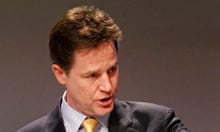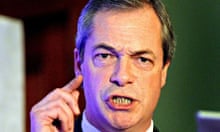On May 22 voters go to the polls in the European parliament elections. Such an election ought, in theory at least, to generate a vigorous public debate about what kind of European parliament and what kind of Europe the people of this continent want for themselves for the next five years. Instead, in practice, such a debate never even begins here in Britain. Once again this year, just as last time round in 2009, it is at risk of being drowned out by an almost Manichean battle about whether Britain has any place in Europe at all.
Nick Clegg has set out the argument for staying in, not getting out. Mr Clegg and his party deserve respect for their principled readiness to make this case. The leaders of our other major parties ought to be readier to do the same. But the argument that we ought to be having about Europe in 2014 is not just the ultimate one about staying or going. It is also about the kind of Europe we can build for our common welfare. It is about things like economic strategy, governance, borders, welfare, climate change and Russia. These are the questions that will shape the next five years and beyond in our part of the world. These are also the questions that any British government, including the current one, has to face, month in month out, in its dealings with its partners. The rest is simply noise. We have too much noise and not enough thought when we talk about Europe.
Anyone who happens to have visited another part of the European Union over the Easter break may have been struck by a difference between there and here in this regard. In Germany, for example, the posters and billboards are out in force in the major cities. On those billboards, each party promotes its European policies. Angela Merkel's centre-right CDU advances the need for stability in Europe. The centre-left SPD calls for a strategy of investment not unemployment. The liberal FDP argues against too much regulation. The Eurosceptic AFD wants less Brussels in people's lives. The Left party demands an end to European austerity, while the Pirates say the argument about borders is so 1980s.
Germany is not typical of the whole of Europe – no such microcosm exists. Nor is it beyond criticism in the way it conducts its politics. But the German way, or something like it, makes a better fist of a mature election debate about Europe than what we have in Britain. In Britain, no less than in Germany, each party should be putting forward its European policy and competing for support. Other countries manage to do this. We could do it too. We could start by recognising that the quality of our public debate about Europe is often abject. Measured debate about questions that cannot be solved at the national level ought not to be so difficult. We don't even have posters, still less reasoned debate.
It isn't setting the bar high to expect a more sensible argument about the European level of British life. Naturally, since all politics is also local and also national, local and national arguments matter too. That is true in every country in the EU, not just in Britain. It is also true that a form of Euroscepticism exists in every country in the EU too. And true that every member state will produce a distinctive election result that reflects national as well as European preoccupations. Nevertheless, in other parts of the EU there is a less heated recognition that there is a European level to our existence as European nation states, about which choices can and must be made democratically. It should not be beyond the British parties to fight these elections in a similar vein.
Britain's role and place in Europe are, and certainly ought to be, much more important questions than what you think about Nigel Farage or Ukip. Europe is not going to go away and nor – better get used to it – is the EU. So the parties ought to be offering a range of approaches that reflect competing political values and priorities at the European level. In or out is not the only European question. It ought not to be beyond our political parties to raise their game over the month to come.







